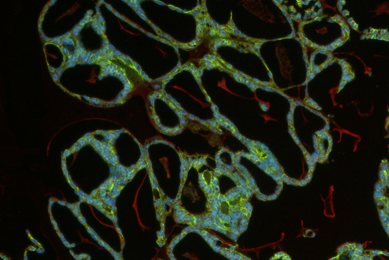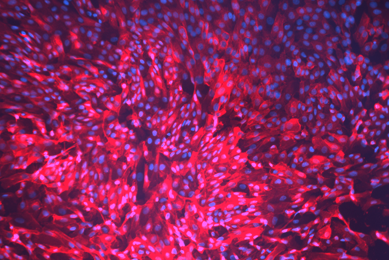Why it's important
You can avoid late stage drug development failure if you start the preclinical stage with reliable and authenticated standards and model organisms. Quality cells, media, and reagents allow you to test using in vitro models to predict in vivo outcomes. Better to ‘fail early’ than to spend years, and hundreds of millions of dollars only to fail in clinical trials!
How we can help
ATCC authenticated cell models will ensure your research results are credible and reproducible. We share our research with you in several in-person and online events.
This week, on October 6 we broadcast a webinar entitled, Evaluating the Differentiation Potential of Primary Airway Cells in 3-D Models. In this webinar we show techniques and procedures that can help you reliably generate 3-D airway models with consistent full epithelial differentiation. On November 2, our webinar Does Differentiation Matter? Comparing the Toxicological Response Between Airway Epithelial Models further explains how advanced 3-D airway models can be used to assess short- and long-term exposure to chemicals and may provide more predictive information for use in pharmaceutical development, toxicity testing, and basic research.
From November 13 - 16, we will attend the American College of Toxicology (ACT) 2022 Annual Meeting in Denver, Colorado and present a poster showcasing our portfolio of products that support toxicology and toxicity testing.
We also featured several webinars in early 2022 that discuss other toxicology research and development at ATCC and share our results with you.
In the webinar, Kidney SLC Transporter Cells – Reliable Tools for Assessing Renal Solute Passage and Drug Toxicity, ATCC presents physiologically relevant transporter cell models created using hTERT-immortalized primary renal proximal tubule epithelial cells (RPTEC) that stably overexpress the OAT1, OCT2, or OAT3 gene. Our experts share the data indicating that these cell lines provide tissue-relevant results, improved consistency over time, and predictability for clinical trials. Learn how these models can save you time and can support your toxicological studies.
hTERT-immortalized primary melanocytes provide tissue-relevant results and reproducibility for any cell-based assay. These melanocytes have been tested and validated for longevity and to maintain primary cell features, such as melaninogenesis. Immortalized Melanocytes can be used for performing studies of the complex process of skin pigmentation, high throughput screening, environmental/cosmetic toxicology, and basic research into cell metabolism. Watch the webinar, hTERT-immortalized Melanocytes – Advanced Models for Your Dermal Toxicity Studies to learn how they can be used in your research,

Toxicology experts
Kevin Tyo, PhD
Scientist, ATCC
Dr. Kevin Tyo is a Scientist in Research and Development at ATCC with over 10 years of experience in biological research. In his current role, Dr. Tyo develops and evaluates advanced in vitro co-culture models, as well as conducts toxicological testing. Dr. Tyo received his Ph.D. in Pharmacology and Toxicology from the University of Louisville in 2019, where he designed and tested topical drug delivery platforms that provided sustained release of antiviral therapeutics.
Kevin Grady, BS
Manager, Product Management, ATCC
Kevin Grady is the Manager of Product Management at ATCC. He has been with ATCC for 8 years; prior to ATCC, he held positions at Lonza as Global Product Manager and Director of Scientific Support. Kevin has a long history in the life science industry additionally serving as Director of Scientific Support at Amaxa and Manager of Technical Support at Life Technologies. Mr. Grady has always found great satisfaction in helping researchers learn how to use available products and tools to be more productive and successful in reaching their research goals.
Dive deeper into toxicology resources
Toxicological Screening
Patient outcomes depend on accurate diagnostic assays. Discover why advanced biological models are essential for the development and validation of diagnostic tools.
More
Toxicology and Safety Testing
Streamline your research with advanced cell models that support every stage of your toxicological screening.
More
Toxicology
ATCC provides the tools you need to explore lung, skin, cardiovascular, gastro-enteric, liver, kidney, and neural toxicity. Our cells, media, and reagents help in toxicology research to identify responses to environmental toxins or to screen pharmaceutical compounds.
More